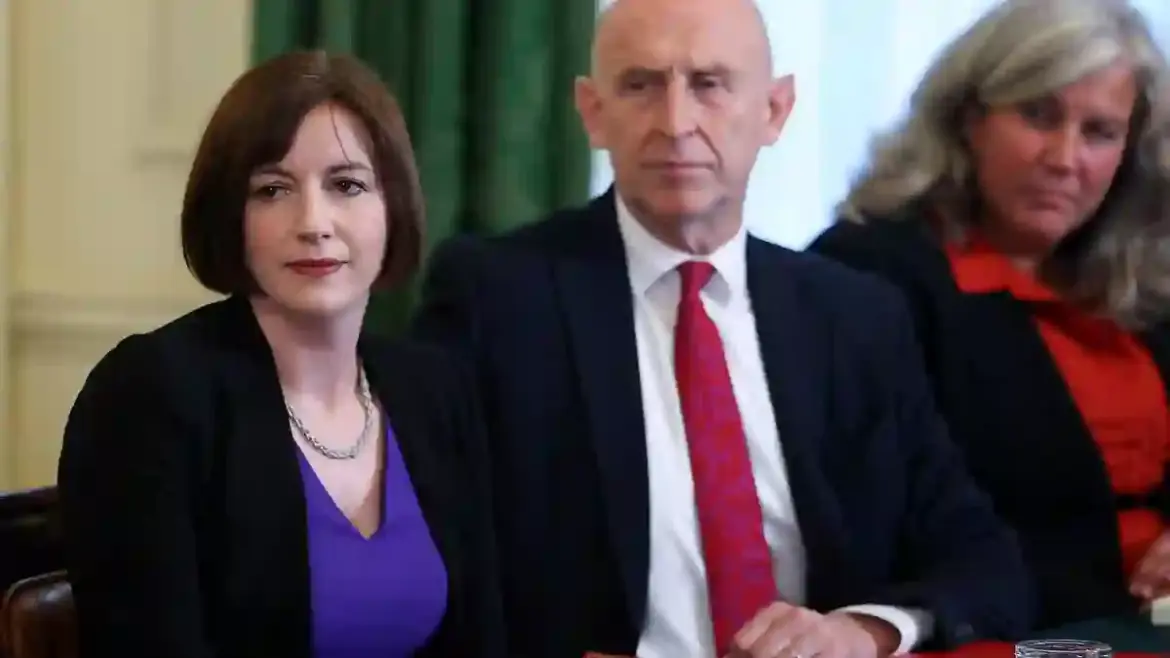The race to replace Angela Rayner as Labour’s deputy leader is heating up, with multiple high-profile MPs throwing their hats into the ring.
Among them, Education Secretary Bridget Phillipson has emerged as a standout contender, vowing to deliver on workers’ rights reforms in full and winning over unions with a bold, uncompromising pitch.
Phillipson Pledges Full Commitment to Workers’ Rights
Speaking at the TUC conference in Brighton, Phillipson made it clear that the government’s planned employment rights overhaul will go ahead “no ifs, no buts.”
Her speech positioned her as a strong candidate for the role, appealing directly to the party’s union backers.
“I am a proud working-class woman from the North East,” she told the conference.
“I’ve faced powerful vested interests before and never stepped back.
With me as deputy leader, we will fight to deliver better opportunities for working people across the country.”
A Crowded Field of Challengers
Phillipson faces stiff competition from across the party.
Former Cabinet colleague Lucy Powell, who has previously apologised for controversial comments regarding grooming gangs, confirmed her candidacy, earning praise from Greater Manchester Mayor Andy Burnham.
Emily Thornberry also declared her bid earlier, promising she will not simply “nod along” with Sir Keir Starmer on contentious issues such as Gaza and wealth tax.
Other candidates include Housing Minister Alison McGovern and left-wing MPs Paula Barker and Bell Ribeiro-Addy, all adding to a six-strong field.
The Nomination Battle Begins
Nominations opened today, with hopefuls needing support from at least 80 MPs by Thursday at 5pm to advance to a vote by party members.
This threshold means only two or three candidates are likely to make it onto the final ballot.
Early polling from LabourList’s grassroots community shows Phillipson as the frontrunner, with a net favourability score of 39, compared to 20 for Thornberry and just one for Powell.
Powell and McGovern Highlight Grassroots Experience
Lucy Powell emphasized her Manchester roots, saying her politics are shaped by understanding everyday challenges.
“As deputy leader, I would ensure these experiences guide our actions and unite all parts of the party,” she said.
Meanwhile, Alison McGovern highlighted her long-standing Labour and trade union experience, noting her family’s generational ties to the railway and her commitment to tackling child poverty and food insecurity.
Gender, Geography, and Party Dynamics
Several figures, including Health Secretary Wes Streeting and Labour veteran Baroness Harriet Harman, have highlighted the importance of selecting a woman from outside London.
Streeting said this would broaden perspectives within the leadership, while Harman argued the deputy should complement Sir Keir and help galvanize the party nationwide.
The Hustings and Voting Timeline
Candidates must first secure MP nominations, then win support from at least 5% of constituency parties or three affiliated trade unions to proceed to the ballot.
Voting will open on October 8 and close on October 23, with the results announced on October 25.
Labour’s annual conference, beginning September 28, is expected to play a pivotal role in the campaign, providing candidates with a platform to present rival visions for the party ahead of the vote.
